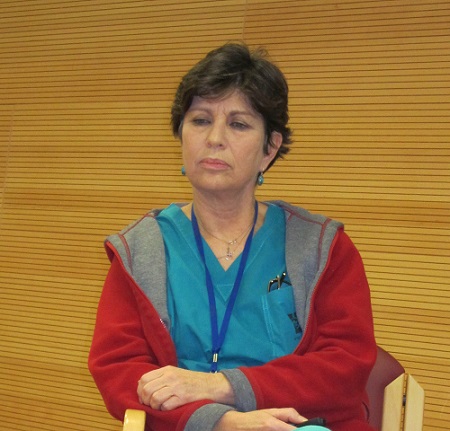
Julie Benbenishty, Nursing Coordinator of the Hadassah Medical Center’s Trauma Unit, was concerned about continuity of care when her patients from the West Bank and Gaza left Hadassah. “The minute they returned home,” she relates, “I had no one to be in touch with about follow-up care.”
Recalling one particular case of a Palestinian truck driver who was heading home after being treated for severe injuries at Hadassah, Ms. Benbensihty says: “He needed to have rehabilitation therapy closer to his home and my fellow nurses and I wanted to make sure that his still-healing injuries would receive proper care. Despite outreach to doctors and nongovernmental organizations, I still couldn’t find a nurse to whom to transmit the patient’s information. I felt awful that despite the relatively short distance of under 20 miles, I didn’t know one nurse there.”
Ms. Benbenishty discussed this dilemma with her friend and colleague, Na’ila Hayek, an Arab-Israeli nurse from the Galilee who is in charge of all of Hadassah’s Intensive Care Units. She learned that Ms. Hayek encountered the same problem. This challenge was the spark that led the two nurses to create Nurses in the Middle East, whose mission is to connect nurses to each other, regardless of political, ethnic, or religious identity and, together, promote regional health.
“I don’t define being a nurse as just doing my shift,” says Ms. Benbenishty. Being a nurse means worrying about healing in the broader sense and making a better world for my children and yours.”
Read The Jerusalem Report’s full interview with Julie Benbenishty.
Listen to Julie Benbenishty’s podcast.
